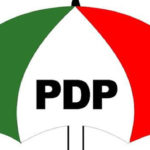The race for an independent Nigeria started quite well and on a good note of trust, unity and morally justifiable cause. Dr Nnamdi Azikwe from the East; Alhaji Ahmadu Bello and Alhaji Abubakar Tafawa Balewa from the North and Chief Obafemi Awolowo from the West were amongst the prominent nobles and dedicated citizens who led the movement for the independent entity we have today.
How can we describe the scenario where we have an Easterner becoming the president at a period when there was an already existing northern power and Alhaji Tafawa Balewa took power as the Prime Minister? It is nothing but pure dedication and selflessness to a united country, devoid of ethnicity, tribalism or religious bias..
Then, the sad incident occurred that left tears and unforgettable memories of pain that led to a chain of events which affected the lives of many till date. Even those that were not born at that time wished it never occurred. Just like Chinua Achebe described in his book; ‘Things Fall Apart,’ everything virtually fell apart in the country and were beyond reasonable repairs for the secessionist state of Biafra led by late Lt. Colonel Odumegwu Ojukwu from July 6, 1967 to January 15, 1970 and Nigeria as a whole.
Biafra represented the nationalist aspirations of the Igbo, who thought continuous coexistence with the Northern-dominated Federal Government seemed unrealistic. Though, this could be said to have resulted from political, economic, ethnic, cultural and religious tensions which had preceded the British’ formal decolonisation of Nigeria.
Major causes of the war included ethno-religious riots in Northern Nigeria, a military coup, a counter-coup and persecution of Igbo living in Northern Nigeria as well as control of the discovered lucrative oil production in the Niger Delta region which played a strategic role.
There was a breach of the national unity laboured for by the early fathers and mothers, people bade farewell at the very sunrise of the success of the struggle. Every individual is very much interested in his gains and his people’s without care for others. Allocation of national resources is drawn along ethnic and tribal bigotry without concern to what united us from inception.
But if the civil war had not occurred, without mincing words, our dream of a united Nigeria devoid of tribalism, ethnic favouritism and religious sentiment would have been realised to a large extent, if not fully, as pictured and laboured for by our early fathers. Till this moment, years after its occurrence, there remains no better word to describe our situation than retrogression.
Statistics of the casualties and victims recorded at the period gave a clear picture of the dismal situation the country was and what was left of a nation that was once united to fight a just cause for a better tomorrow.
According to the Encyclopedia of War and Encyclopedia of Contemporary Genocide, military personnel killed ranged from 45,000 to 100,000 and about two million perished from the naval blockade, more than two million got displaced from their homes and close to three million became refugees.
The dilemma the country found itself and which has kept hunting it would have been averted if the war never happened or preferably, if the situation was managed diplomatically. The simple truth all must take into cognisance is that the war did not solve the existing problems; rather it created more unsolvable ones which every Nigerian suffers from one way or the other.
The marginalisation clamoured against by the Igbos back then is obviously on the high side which has led to the recent call for secession or even restructuring. A major outcome of the war is tribal and ethnic intolerance. History has shown in detail the fact that being a Nigerian is key and important than where you come from or what tribe you belong to. Before the war, Nigerians from the north comfortably lived in the south without hiccups and crises; similarly, a westerner lived in the east and vice versa. Post civil war era has exposed Nigerians to numerous inter-tribal and inter-regional clashes which has claimed the lives of many and led to the destruction of properties.
Why would a Nigerian citizen exhibit hatred instead of love to his fellow citizens, if not as a result of previous experiences? Families, relatives and associates of the victims of the war were not able to get over the trauma and dilemma easily. In fact, many are still living with the trauma and it is easy for them to get aggressive when they see people from other tribes who they perceived caused their fore-bearers pain.
Reading Chimamanda Adichie’s ‘Half of a Yellow Sun’ or watching its movie adaption would leave tears in one’s eyes and reinforce the fact that “war was not made for Nigeria.” Indeed, one may become an anti war advocate.
Famine and poverty found their way and dominance in the land despite unrestricted availability of mineral, material and agricultural resources. This is injustice; the agony, pain, dilemma, suffering, death and unsolvable problems that continue to plague us as a nation came to limelight after the civil war and would never have existed, at least not in this dimension, if the civil war never happened.
Indeed, according to Chinua Achebe, ‘There Was a Country’.
Shotonwa, a journalist sent this piece via shotonwa.waheed@gmail.com






